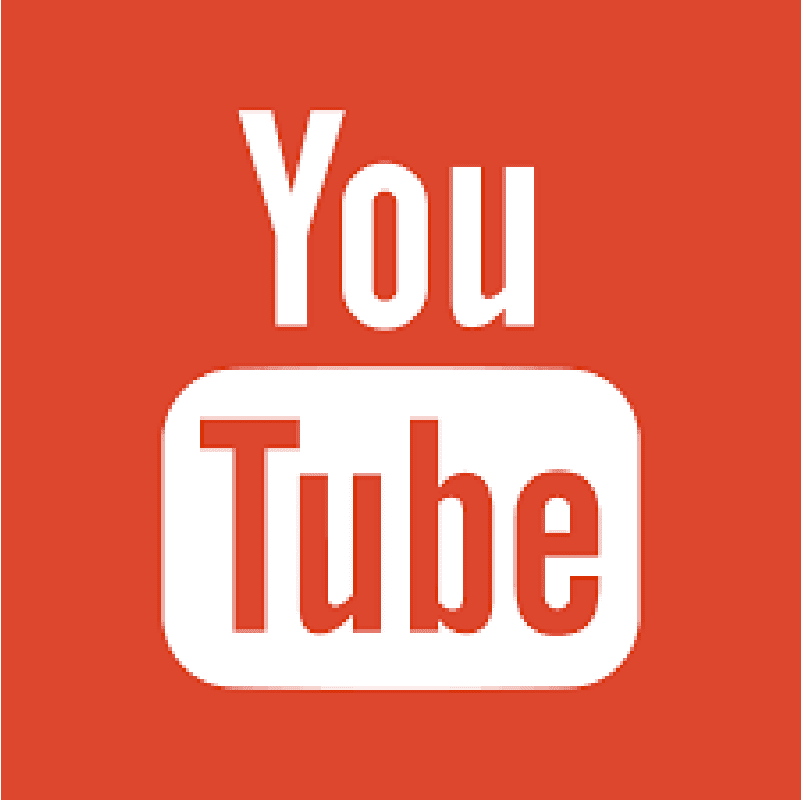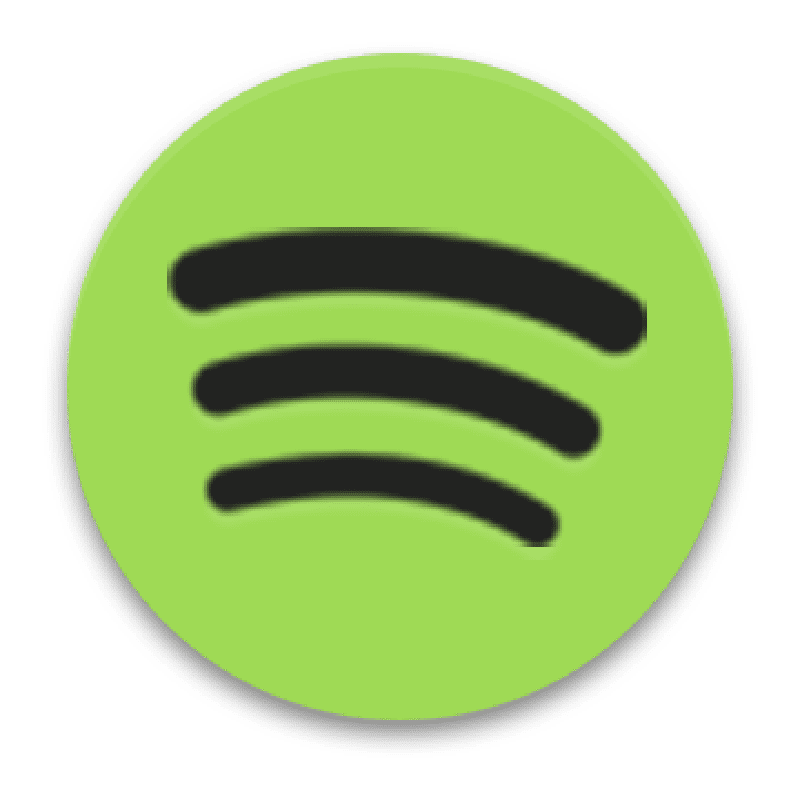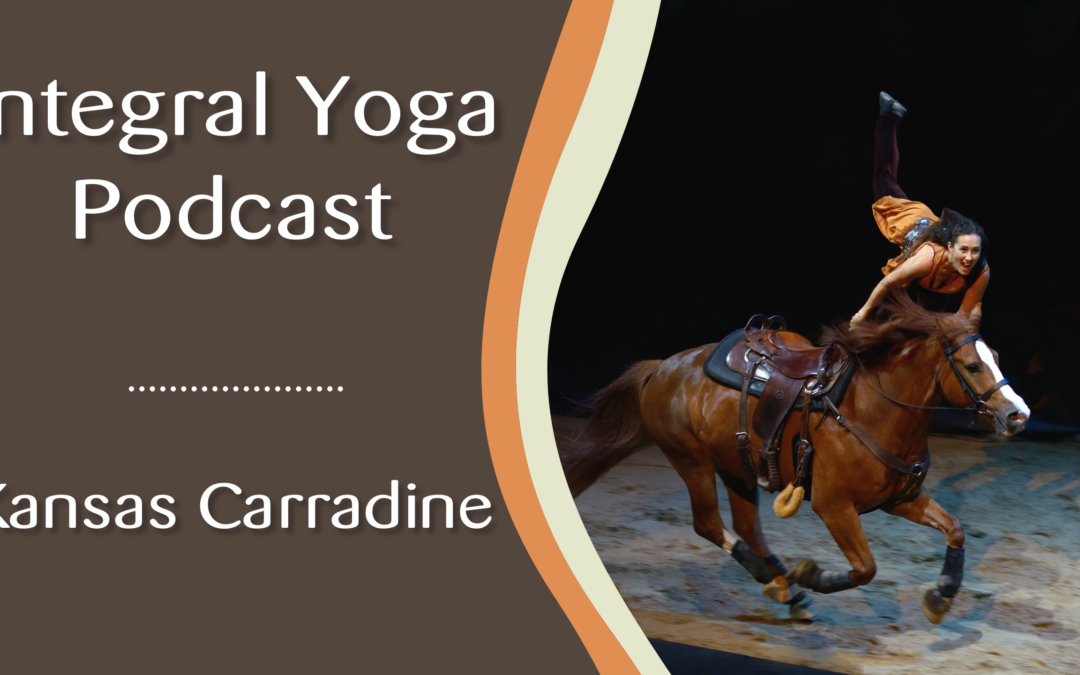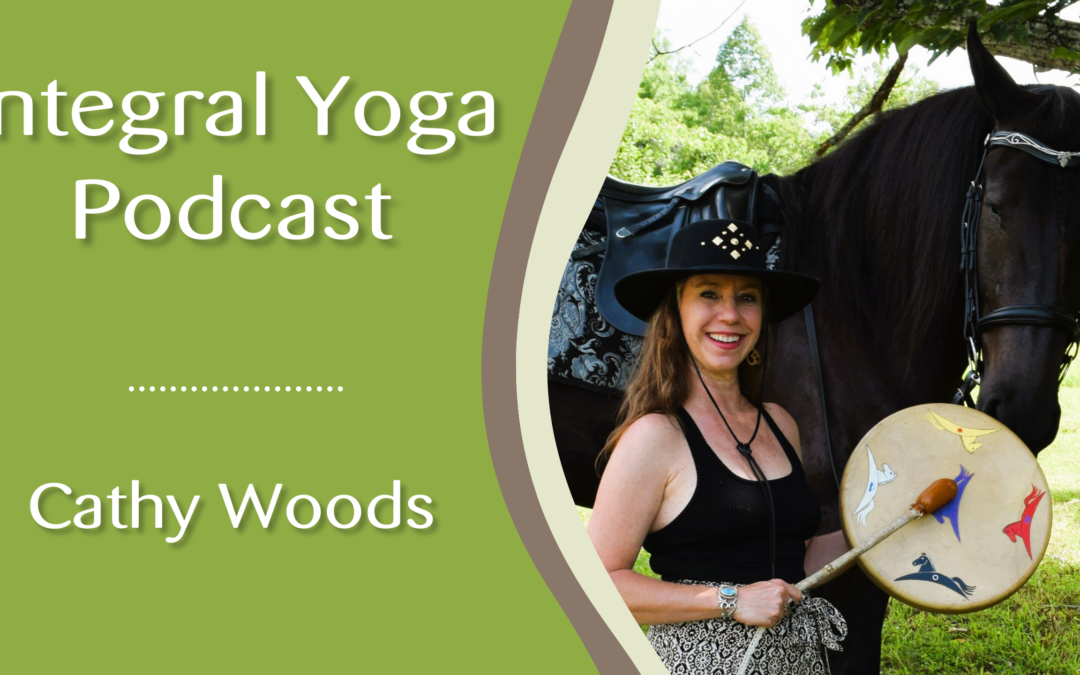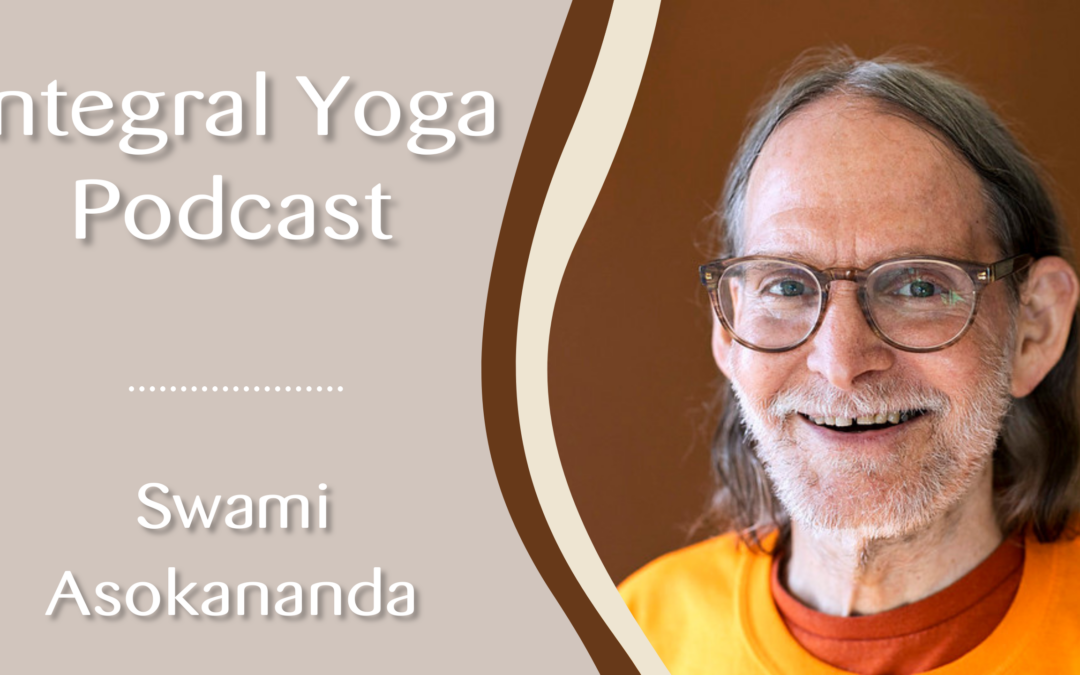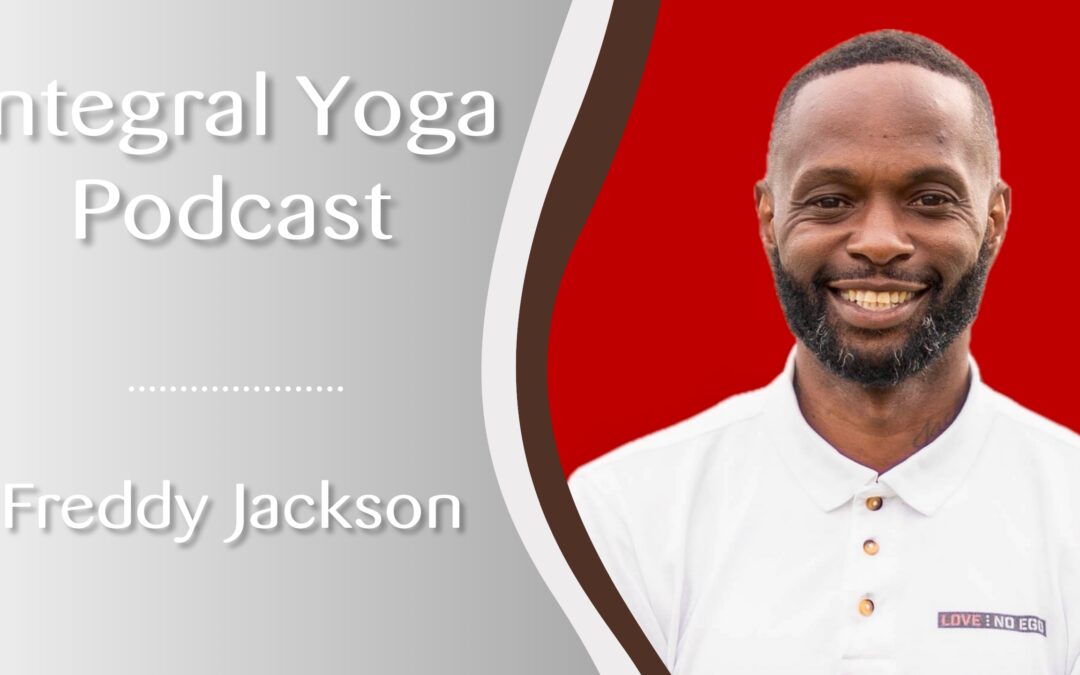All right? Les, so I want to start by asking a question I haven't started with in a while, but I think it will be fun to ask you this question, what matters to you?
What matters. It's a long list. I think not that I'm overly fussy about things, but sincerity matters to me. Obviously, my spiritual path matters to me greatly. I think moral standards, I like to maintain them, and I like them in other people. Apart from that, I say it could be a long list. You drop me in it there by just asking, straight away, I'm going to have to spend time thinking about but I think it's basically my spiritual path and all that goes with that, which includes the yamas and niyamas and 10 Commandments, as if you will, you know, to to honor all of those.
Yeah, very good. So, yeah, let's, let's focus on that your spiritual path. And we, kind of, we say that often, you know, spirituality, spiritual path, but I find it can mean so many different things, right? So I'm curious, what does it mean to you, and why is that one of the things that's so important to you to connect, on a spiritual level, to this experience of being alive,
it is obviously, I was born and raised in the Baptist faith, the Welsh Baptist faith, and I struggled with that Christianity, and it couldn't answer the questions that I kept asking myself. So it wasn't until later, when I when I actually started yoga, that the answer started to come. And there, I realized quickly that I didn't really want to be pigeonholed, pigeonholed into any particular religion, although some people might say, well, as a yogi, you're pigeon holed. I think no, if I'm asked if I'm religious, I'll say I'm spiritual, because then, like spirituality runs through all religions. So basically I can say, well, I belong to all faiths. I believe. I respect all faiths, not necessarily that I believe them, but I do respect everybody's right to believe what they want to believe, and that gives me a great deal of freedom. And that's why I think the spiritual path is so important to me. Not only does it give validation for my life and purpose for my life, but it also helps me to accept an awful lot that maybe, as a devout Christian, I would not have done, you know, because they're very a lot of religions. I'm not just going to criticize one, but a lot of religions are too dogmatic. They're too My way is the best way or the only way, and I don't get that at all. I've never really subscribed to that. So I think that anything that's too dogmatic I still steer clear of basically, and I just want that freedom to believe what I want to believe, to think what I want to think, and if I believe in God, I want that to be a simple belief. I don't want it complicated by too many dogmas and and everything else that goes with it too many rules and regulations. If I just believe in God and I and I can actually communicate with the divine, whatever name you want to give it, and it can communicate with me, then I like, I just love that simple relationship. I absolutely love it. I think it's the best way for me. It's not for everybody. I admit, a lot of people really want to dig deeper and deeper and deeper, but as far as I'm concerned, I don't want to over complicate my belief system. I have a nice, comfortable one. I'm very comfortable with it, and I'm happy with it. So that's why I think that's so important to me, because it it all makes me happy, and everything fits, and everything that I do now, especially now that I've semi retired, becomes more meaningful, and every day is filled with certainly, we have a lot of fun and laughter every every single day, there's a lot of love, there's there's a lot of purpose behind what we do, what I do now, the creativity side is now allowed to come out, whereas that was suppressed For a long time. So yeah, that it's very important to me, in a nutshell, as I'm sure it is for you too, that I know that you struggled with your Judaism faith. So you must feel the same thing, that there's a certain freedom now that you can accept everything, including Judaism, like I can accept baptism 100%
definitely. Yeah, if I'm gonna want freedom myself, then I have to extend that to others as well, even Yes, exactly, if it's not something that I agree with, as long as it, you know, doesn't seem to be negatively impacting me or or others. You. I think freedom, freedom is essential that I also really like what you mentioned in terms of simplicity. So for me, that was also, is also extremely important in life. It's like the simplicity allows me to, I think, relax to a certain degree and over complicating things. And that was a part of, yeah, my experience growing up with Judaism, and it's very complicated, and there's so many different laws and there's so many different interpretations, and all of that is incredibly difficult to keep track of, and that just doesn't work for me. Yeah, I need it to be simple. I realized, not even a physical level, I need my house to be clean and get rid of things that I'm not using. Like that makes a big, big difference.
Yeah, yeah. What is it? Minimalist? Yeah, exactly. Everything minimalist. Simplify your life, and then you're happy with it, absolutely happy with it. Yeah. I think, you know, we tend to hoard a lot of things unnecessarily, even now I'm guilty of that, but I don't know. I think now I can prioritize and say, well, certain, certain stuff is not that important. I don't really know why I've got it. I'm not attached to it. So if it goes, it goes, That's it. That's another freedom, the freedom of non attachment to things absolutely love that, you know, there's very little I'm absolutely attached to. And I think the only thing that I'm really attached to is love. I don't see anything wrong with that.
Yeah, to be and to, you know, be so attached to one thing or a couple things that that everything else kind of dissipates because there isn't room for for much else, right? Like the love is so big
for anything else. You don't stand for nonsense anymore. We would. The older you get, you learn that, don't you, and they say that you know, the older you get, you suffer fools less you know you you can, you can actually speak your mind, whereas before, you might not, for fear of what people think. And now there's a certain freedom in being able to say exactly what's on your mind, so long as you do it in a loving, caring way and an honest way. And I love that freedom, too. I'm practicing that. I'm sure that my partner here will will say, I don't fully do that, but I try to, I try to be as straight as I can when I can. I wonder
about what allows for that too. Like you mentioned at the beginning. You know sincerity. You know being straight, being authentic, like, okay, in a way, it's just the first step to even acknowledge that that's my intention. But once, once I realized it's my intention, actually doing it is now a whole other level, not just saying it. And for me, what I could say really works is considering what I am, right, right? Like, what? What am I? Am I this separate being that isn't a part of nature, that isn't a part of God's creation, or am I a part of God's creation, you know? And if I am, then being authentic is a certain level of respect for that, and being fraudulent and wanting to convince other people of this and that that's not honoring God's creation, right? No,
no, quite it's not. It's the misinterpretation of everything. I feel it's it's almost a bastardization of the truth. It's people twist and turn it for their own benefit, for that, you know, to fit their own egos, if you like. And now I have really no time for that at all. I think if people can be straight with me, I much prefer that, because then I can accept them better, rather than them pussy footing around and, you know, trying to be something that they're actually not, and that sort of thing. And then as they Okay, grow up, get a life, you know, that sort of thing.
Yeah, I wonder, you know, if the curiosity also extends to this, like being authentic to myself, then I'm curious of even what's going to come next. And I wonder, for you, who's an artist, you know, you draw and you play music, and, yeah, and, and you're a photographer. Like, is that just what shows up? The kind of stuff that shows up when we're authentic, then all of a sudden, like, this creation moves through us.
I think so. I think that once you tune into that the inspiration comes once you through meditation, or however, the inspiration comes through you. I think there's a lot of creative people say the same thing, that it's not them. It's something beyond them that actually creates whatever it happens to be, the music, the art, the writing. Painting, the photography, whatever it is. And I feel that in my case, as I say, the creativity in me was suppressed because of my circumstances. For a long time, I went through an early stage of being creative, and then life took me in a different direction, and I wasn't able to follow as much as I wanted to. And it's only recently, since, I guess, since I got on this spiritual path, that I realized I can do that again. You know, I can tune into it, and I can create something. And it did start slowly, and now it's, it is seemingly coming back again all the the call them gifts, because I don't call them talents. I think whatever I do is channeled through me, right? So it's not me, it's a gift from the Divine that comes through me, and then somehow it all just suddenly comes together. It may be fragmented at first, or it may be just the draft of an idea, or something like that. There's or simple, I don't know how to express it, something that doesn't come as one in detail. It's something that's drip, drip fed through me. And then you can come up with a draft, and then you work on that, and then it gets better and better and better. And I think that's it's not just, I'm not just talking about drawing or writing. It's just something that is in your head. And then once you start putting it as a draft in whatever it happens to be, in the music, the art, whatever it happens to be, suddenly there's a flow. And it goes from a draft gets better and better and better. That's how I feel, anyway. So, yeah,
I wonder, is there like an initial seed that's planted? Or I don't know what the right word is right, so, and you mentioned meditation too, because I think that has a big effect on this right, like getting to that clear, neutral place often brings something through that feels extremely important and Right, right? Yes, but then what follows that is interesting to me, because it seems that the mind does have a part to play in this. So something comes through that feels of value that I should give attention to, and then the mind can be used to focus on that thing to kind of almost like the mind itself is maybe like the sun is light and it's deciding what to shine on, and as it continues to shine and spend time on that thing, then that maturation and expression starts to unfold in the way that you're talking about
I think, I think that's a good way of expressing it. I think that's a good way of putting it absolutely, yeah, there's a seed planted, and if you stay focused on that seed, much more will be revealed, but the question is to stay focused on it. Sometimes, I'm sure we're all guilty of this, you'll suddenly have an idea, and then five minutes later it's gone. It hasn't planted. The seed has popped in, and it's popped out again, and that's it. I know that's happened to me, but then when it does pop in, like you get something visual or something audible in your mind, and then you think, okay, I want to now interpret that the mind is the instrument that you use to interpret it. So the mind has to to function and analyze it and interpret it. And I don't know how else to say it. The mind is the tool that you use to get from that seed to the finished product. So the mind has to have that ability to do that in the first place. It's not something that is just presented on a plate to you. It's something that you have to work on. And I think that's maybe that happens to the people who are creative, that they have that ability straight away. But in my case, it's, it's a, it's a bit of a slower process. It's there, but it's has to be drawn out. I have to work on it, you know? I mean, you play guitar, you play music as well, right? So do you ever come up with your own stuff?
I haven't really guitar is different for me, because I've just been so satisfied I learned at a later age to play, and I've been so incredibly satisfied with just the ability to play some different songs that I enjoy so much. And it's, it's really more of, I mean, sometimes I'll, I'll play like I did at the reunion, you know, in front of others, but rarely, it's more of a very personal activity that I do to to just feel something great to enjoy, you know, the act of singing and connecting with these songs that I that I love so, so much. But, but, yeah, but almost, it's almost like it sounds like, if it is something that that's that's kind of calling to be created, right writing, music, art that I don't even I don't know if will is the right thing, but maybe it is like that will to. To come back to something, to not get distracted by other things that are new and shiny but not as important. And I think that's really hard in today's age too, right with social media and everything else we're so this is, this is critical to actually creating something that gives a person purpose. Is to, in a way, prioritize, right? All these things are coming in non stop, but what really feels like the most important thing for this being to be spending its time doing,
yeah, I think, I mean, we could get onto the subject of AI, because now and I have a slight disagreement about the usefulness of AI, right? But it's, I think, in this case, is relevant to what you're saying, and that is that I feel that I understand AI is here to stay, and it does have incredible uses, and it's quite fantastic. But I'm very much the purest at the old school. I like to create something that comes from me, and then once it's come from me, I'm quite happy to give it to someone, to put it through AI, maybe to improve it, or to disseminate it wherever it happens to be. But I personally would not want to sit down and create something using AI. I think it has to come from me. It's these days, there's a lot of talk about AI writing books for people and doing all sorts of manner of wonderful things. And I can see that there is a purpose for that. There is a use for that. But then I think in the long term, we're going to lose our individual creativity if we allow the AI to take over, it's like, all right, you need to have a machine to take a photograph. You need to have a camera to take an actual photograph. That's by definition, right? But these days, you have Photoshop, so you can take a really bad photo, photograph, and then you can put it through Photoshop and make it look very artistic and wonderful, right? But again, I don't like the concept of using Photoshop, except in certain cases, like Photoshop is very good for restoring photographs, very good for fine tuning an already good photograph into a great photograph. But to me, the joy, the pleasure, is once you take that photograph and you see it like it's come out exactly as you wanted it to, just with the camera, not with anything else. That's the joy of the of photography to me, I I get it that other people believe differently and that they they just think, well, it doesn't matter if I mess up. I can, you know, put it through Photoshop, and now you can buy mobile phones that have all sorts of software in them to to edit photographs and do all sorts of wonderful things. My son, Bradley, has one very expensive it's more of a camera with a phone function, rather than a phone with the camera function. But to me, that's, I don't know. That's not as satisfying as getting a good old camera, maybe even a 35 mil camera, taking a photograph and seeing the end product and saying, Wow, that really worked exactly as I wanted it to. There's that joy. I don't need to do anything further with it, you know. And I think that's, that's the my attitude towards all creativity and anything that's AI. I think it has to come from us in the first instance, and then, by all means, we can we can spread it with AI, we can improve it with AI, we can do all manner of things with it, but the initial thing had to be channeled through me, to come out of me first.
I wonder if, if this isn't so different than when we were speaking about different religious practices. Spiritual practices, and and how there are so many different paths and techniques and and all of that that people use, and that it's all fine, but that you know, for you as an example, for me, we appreciate the simplicity, you know, of our practices, but if someone else wants to be more complicated, then it's fine. So Right? Like, that's the question I hear what you're saying in terms of, like, for you, this is the way that you want to take photographs. This is the way that you want to write. Yes, I don't think there's anyone that's stopping you. More of the question would be like, do you want to prevent others from using AI, using other tools, as a first draft, as a way for them to move forward, because that would be my question. I
don't think that's my role. I think every I have to respect everyone's rights to to do what they want to do. Obviously, with my my children and my grandchildren, I like to steer them in a particular direction so that the creativity comes from them, but I have no right to tell anyone that you shouldn't be doing this. You shouldn't be doing that. You know, AI is here to stay, and we'll see what the long term impact is going to be on humanity. And there will be an impact on humanity, for sure, but it could be a positive one. It could be a negative one. There's. Like the old analogy of the knife, is it a good knife? Is knife good or is it bad? You know, we don't know yet. There's a lot of good things to come out of it. I can understand that, and I can see that, but I can also see there's a lot of risks, because, like all technology, they become addictive, and people don't have that discriminative discernment. To be able to say, I'm going to stop this now. I'm going to go back to to writing my own stuff, rather than getting a computer to write it for me and that sort of thing. I think people will get too lazy, too addicted to all of this stuff. And that's the That's what I'm worried about, that that will be the negative impact on humanity in the long term. And
I wonder if it's, it's much different than, let's say, GPS or calculator, right? Like, clearly, humans now who use GPS are not as good at, you know, spatial awareness and understanding, you know, just the physicality of of their surroundings. Similar similarly with math. You know, because of calculators, people aren't as good as doing, you know, math in their head, and these things aren't going going away. But you know, when the tool is so useful, it's hard to deny it. Oh, yeah,
I totally understand that. But the thing is that everything is accelerating at a rapid pace. Now, calculators took some time to bed in and that for a long time, they were banned from exam rooms and that sort of thing. And yeah, GPS actually is a very useful tool for knowing where you are. I get that. And as I said, I think AI will have its uses as well, because it's not just the creative aspect of AI, it's there's all sorts of applications, and they can see that there is going to be some benefit. It's the same with the internet, isn't it as an information sharing platform, and I think it's an incredible sharing platform. The worry is that people will become addicted to this. That's my concern, and it's all happening so fast. We're getting information overload now, thanks to the internet and young people now getting so addicted to their phones that they can't In fact, there was a survey recently that I heard about that a lot of young people now are scared to pick up the phone and actually speak to someone over the phone, because they've got so used to texting and they can't face the possibility of actually having to speak to someone and answering them and all this sort of thing and physically interacting. And I think this is just the beginnings of that, and that's the dangers. I think the technology in itself is wonderful. I mean, there's all manner of things that can be done now which will help mankind. But there's this aspect of people becoming addicted to it and becoming lazy. By it, I mean, how many labor saving devices do we need before we become totally redundant as human beings? And I think it was Einstein that said he dreads the day when the machine will be smarter than the human mind, or something like, some quote like that. And I think that's that is a possibility, and then what happens to us? Yeah, unemployment rates are going up ridiculously. Poverty is going up ridiculously in so called industrial, you know, wealthy countries, and it's simply because technology is taking over. I mean, thanks to technology, we can do something like this. So I'm not blocking technology. I can see the benefits of it. As I say, I'm just a little bit concerned about the addictive nature of it. That's all, yeah,
yeah. I mean, I think the addict addictive nature is the thing to focus on, and it's so important. What I always come back to is is a simple question. Again, back to the simplicity is, how much so, whatever it is in my life, and especially in relationship with technology, how much so very most of the time? Sometimes the answer is zero. For certain things, I don't want any of them in my life, but for most things, there's a certain percentage. I don't know exactly what that is for all of things, but just to be aware of that's my intention, is to find a percentage that that feels healthy for me, right? Like, how much percentage of my time do I want to be looking at a screen during the day? How much time do I want to be out in nature? How much time do I want to be with other people? How much time do I want to be by myself, just like on and on? So that's the question of how much. And I think the addiction happens when I'm not really aware of the need to even ask that question about this thing, whatever it is that I'm addicted to.
No, I'm like you I think I come to that point now where I think, well, I have to accept certain things, and I will accept them. And there's a lot of things that I don't particularly want to to partake of, you know, like, I closed all my social media accounts except Instagram and. And obviously I've got WhatsApp, but apart from that, I use it very little. I made that conscious decision. I did not want to get addicted to to all of these things. We have YouTube on the TV and, you know, so there's certain things that's useful that we can say, okay, now I want to look at this. I want to look at that, but that's where the discipline comes in, and that's where the discrimination comes in. You know how much time you're disciplined enough to be able to just say, No, that's enough of that, right? And now I'm going to do this. I'm going to go out meet people, I'm going to go out for dinner, whatever it happens to be. I just push that to one side. But unfortunately, there's so many, especially amongst the young people who just can't do that, their social interaction is through a computer screen, full stop, you know? And I think that's incredibly sad,
and that's the consciousness and the awareness, and I think through the yoga practices that we can do like that's really what's behind these practices to become more aware. Yes, awareness itself is what seems to lead to freedom. It
does. Yes, you're absolutely right. Yeah, once you are aware of your surroundings and everything that impacts your life and the things that that disturb you as nobody wants a disturbed mind. We want to keep peaceful and calm and happy and everything. Once you become aware of the, you know, the good stuff and the bad stuff, then you can actually become more disciplined and you can learn to enjoy life more. What I found, unfortunately, is that the older you get, the faster the days go. So we have to try and pack in as much as we can, you know, because they just literally fly by now, I can't believe that we're, you know, coming to the end of the second month of 2025, you know, it's just incredible. And so, yeah, a lot of things that we do now take on a new meaning. They take on a new importance. Stuff that I said earlier. You know you don't suffer fools anymore. You know you can discriminate and say, Well, I'm not going to get involved in that. I don't want that. I want this. And what I want is something that's actually going to help me. It's going to keep you peaceful, happy, calm, whatever it happens to be and and obviously there are certain things, and unfortunately, technology is one of them that causes a lot of frustration. But once you understand the reason that behind that frustration, and that is that you have an expectation, once you let go of that expectation, the frustration will go and you just accept it for what it is, things become better, right?
Yeah, you mentioned disturbances. Are there any particular practices or techniques that you use when your mind is disturbed that are helpful for you to come back to that peaceful place?
Not so much mantras. It depends on the mantra. Sometimes I can use a mantra. I use a lot of music when I'm meditating in our yoga hall here. And it depends on my mood, on the day, as to a, whether I need it, and B, if I need it, what is it I'm looking for? For example, I've got a short one that I created on breathing. I use that one a lot because I find focusing on the breath helps to still the mind. Then there's others, where it's it's music outside. It's not like the mantra in my head. It's music outside, the mantra outside that helps me to focus. And then if I nothing else works, I just say, okay, the mind is is just all over the place. At the moment, I need to focus on something. So I'm going to focus on God. I'm going to talk to God, and I'm going to tell him whatever's on my mind. I'm going to talk to him about whatever's on my mind. And that's very also what I can use to describe that it's very uplifting in that once they start a conversation, you suddenly find that the answers are coming. So you're actually having a two way conversation. That's the way I interpret it, right? That, you know, it's like, oh, right, there's this thing, particular aspect that's bothering me, like there was recently, there was the story of the from the Upanishads, the two golden birds seated on the self same tree, right? One eats of the fruit while the other watches. And I was thinking, well, the one the watching really must be dispassionate. And then I thought that one through, and I came up with the answer and say, Well, no, it's not right. So it's that sort of thing, which is more of a contemplation than a meditation that I find, and also a conversation that helps to clear everything and helps to calm the mind. So, yeah, I find that extremely useful, and that's my if you like, my last resort, if the mind simply will not sit still, then I say, Okay, I'm going to talk to God. I'm gonna have a conversation and see what answers come back. And then also another thing. I've noticed, and this is absolutely true, is that in the moments when I can calm the mind, and they say that you'd get you get certain call them powers, but you gain certain insights, for example, Claire audience, or Claire what's the other one? Claire audience and Claire voyance. I said, right, I can hear birds twittering. I know we're living in the countryside here, but it's not outside. It's not birds twittering the way outside. It's birds twittering in my head. And once I hear that, and I can hear it, and I can focus on it, then I realize, Oh, it's okay. God is here. The Divine is here. I can talk to him. You know, it's very, very faint. Some days it's actually louder than other days, and some days I struggle to hear it, but if I'm quiet enough, I can hear it, and then that's my reassurance, and I can just carry on. I get calm and I just carry on. It's an old feeling, and it's absolutely true, that's what I hear. I don't see things, but I do hear birds twittering. It's like the dawn chorus, you know, like the dawn of a new day, if you if you've ever been out in the countryside, and just as the sun is coming up, you can hear one bird, right? And then a few seconds later, you'll hear another bird somewhere else, and then you hear another one, and it's gradually builds up to the dawn chorus. It's very much like that,


